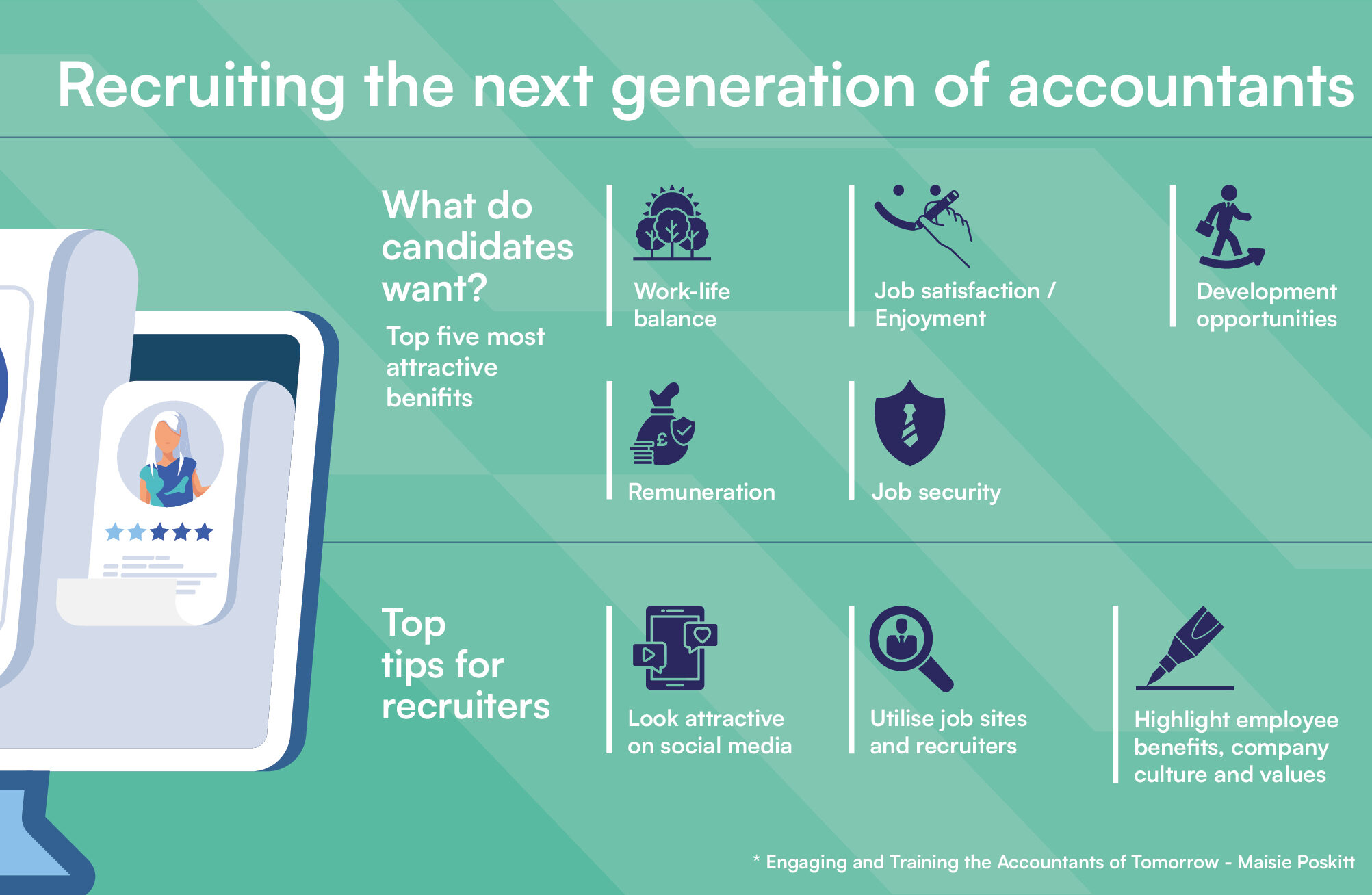Over the last 12 months, I’ve heard multiple leaders in our industry discussing Generation (Gen) Z and how their behaviours may negatively impact on hiring and retaining staff. So, I wanted to investigate the stereotypes of Gen Z (those born between 1996 and 2010) and how people who fall within this group actually feel about the opinions that the older generations have of them.
Earlier this year, I conducted a survey of 131 accountants and held three roundtable events with 27 Gen Z employees at BHP to ask their views on recruitment, training and retention in the accounting industry. In a series of blogs, I will be discussing the findings from my research and report entitled Engaging and Training the Accountants of Tomorrow. Firstly, I wanted to focus on the challenges associated with recruiting the next generation of accountants.
It’s no secret that, in most industries, recruitment has become more difficult as people are re-evaluating their working lives following the pandemic.
In my survey, I asked to what extent people agreed with the statement ‘Hiring and retaining staff is more difficult now than it has ever previously been’. The majority of respondents answered ‘agree’ or ‘strongly agree’. The Sunday Times published research earlier this year (February 2022) that backs this up, finding that Senior Auditor roles were ranked fifth on the list of jobs for which vacancies remained unfilled after 60 days of being advertised.
What do candidates want?
Recruitment in the accounting industry is currently an employees’ market. This means that candidates are pickier when looking for jobs and, if we’re unable to recognise that and make our firms look attractive, hiring will only become harder.
In such a competitive job market, roles must be able to offer the benefits identified by Gen Z as the key factors they would look for. My research identified these as:
- Work-life balance
- Enjoyment
- Remuneration
- Job security and
- Development opportunities
Interestingly, when I asked the older generation the same question, they ranked the same attributes in their top five. This debunks the idea that the younger generation are looking for something different from a job compared to their more mature counterparts.
Can people find your vacancies?
Much of the debate I encountered around marketing is primarily focused on acquiring new clients. But why are we not having the same conversations when around promoting our jobs?
When you think of advertising jobs as a marketing exercise, you’re able to gather a lot more data related to how Generation Zs think and their behaviour patterns. Most importantly, you have their attention for an average of eight seconds. This might not seem long at all compared with older generations but, in fact, Millennials born in the early 90s only spend an average time of 12 seconds looking at a web page or social media post, so it’s not as big a gap as you might think.
Putting this into practice, imagine you have a great social media post on your firm’s green credentials, which might catch the eye of a potential candidate. How long does it take to get from that post to your careers page? More than eight seconds? More than 12 seconds? If so, they’ve probably given up.
How easily can people access your careers page? The Google Generation (born after 1993) typically won’t visit the second page of a Google search as they would expect everything to be there at the top of page one. Arguably, if you’re appearing on the second page of Google, you’re almost unknown.
But is Google the best way to interact with the candidates you are trying to attract? From the survey I conducted, it appeared that there was an even spread between those who searched for vacancies on job sites and those who searched via recruiters.
When speaking to Gen Zs about the use of social media (referring to personal rather than professional platforms), they said a degree of separation was preferred. They wouldn’t necessarily be on Instagram actively looking for a job, but if something caught their eye that a firm was doing well, such as enhanced employee benefits or an emphasis on sustainability, that may well lead them to consider applying for a job with that employer.
On reflection, it seems best practice for businesses is to look attractive on social media, have a link in your bio to your careers page but not look to actively recruit on social media, instead focusing on using job sites or recruiters to find the best people.
You can read my full report here
This material is for informational purposes only and should not be relied upon as professional advice.



